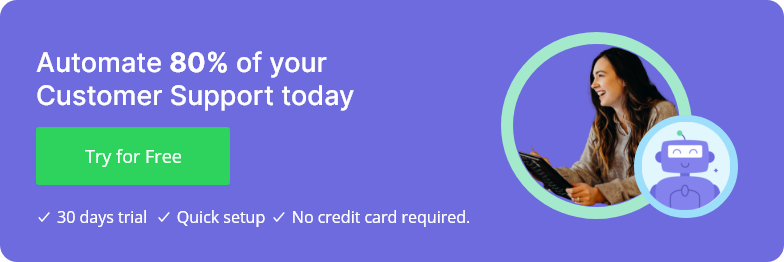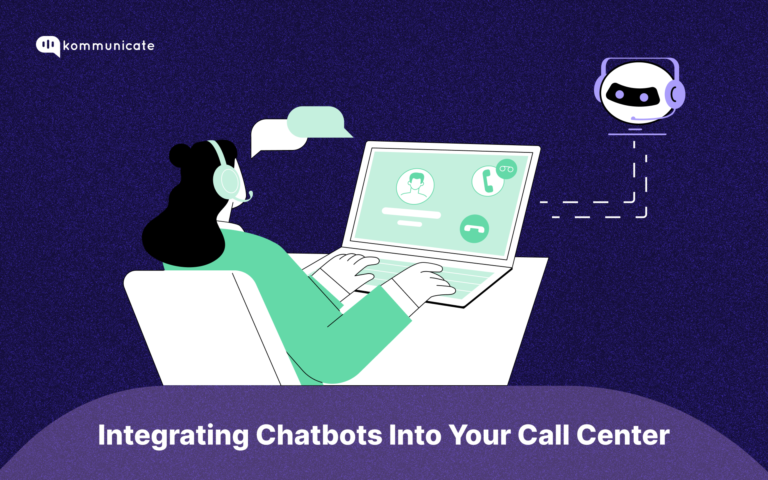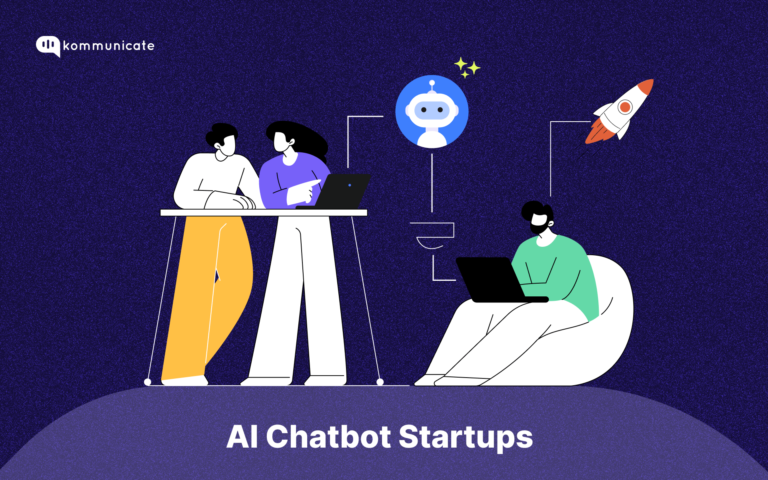Updated on July 5, 2024
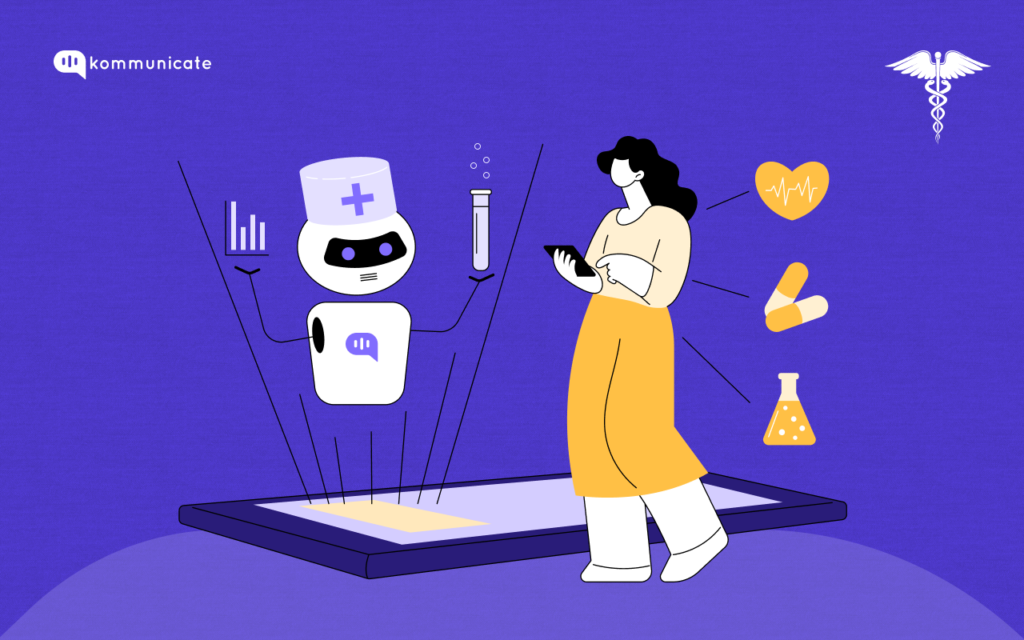
HIPAA compliance, an acronym for the Health Insurance Portability and Accountability Act, is one of the key standards focused on ensuring the privacy and security of protected health information (PHI) in the healthcare industry. The Act mainly contains of 5 titles –
- Title I: Health Care Access, Portability, and Renewability – Ensures access to health insurance, portability of coverage, and renewal of insurance for individuals.
- Title II: Preventing Health Care Fraud and Abuse; Administrative Simplification; Medical Liability Reform – Focuses on administrative simplification, including standards for electronic health transactions and protecting health information.
- Title III: Tax-Related Health Provisions – Addresses tax deductions for medical expenses and health insurance premiums.
- Title IV: Application and Enforcement of Group Health Plan Requirements – Establishes rules for group health plans, including coverage requirements and enforcement mechanisms.
- Title V: Revenue Offsets – Provides revenue offsets to fund various healthcare provisions and reforms.
In this article, we will cover everything about HIPAA and its relevant while building a healthcare chatbot.
Here’s a quick outline –
- Why is HIPAA compliance important for healthcare chatbots?
- Key requirements for HIPAA compliance?
- Best practices for HIPAA-compliant chatbot
- Challenges of developing HIPAA-compliant chatbot
- Use Cases of HIPAA-Compliant healthcare chatbot
- FAQ

Why is HIPAA Compliance Important ?
Healthcare chatbots are more than just a technological fad today. They are a crucial piece in the whole healthcare puzzle, helping out in everything from appointment scheduling to dispensing insurance information.
So why is HIPAA important to healthcare chatbots? Let us explore this facet in detail.
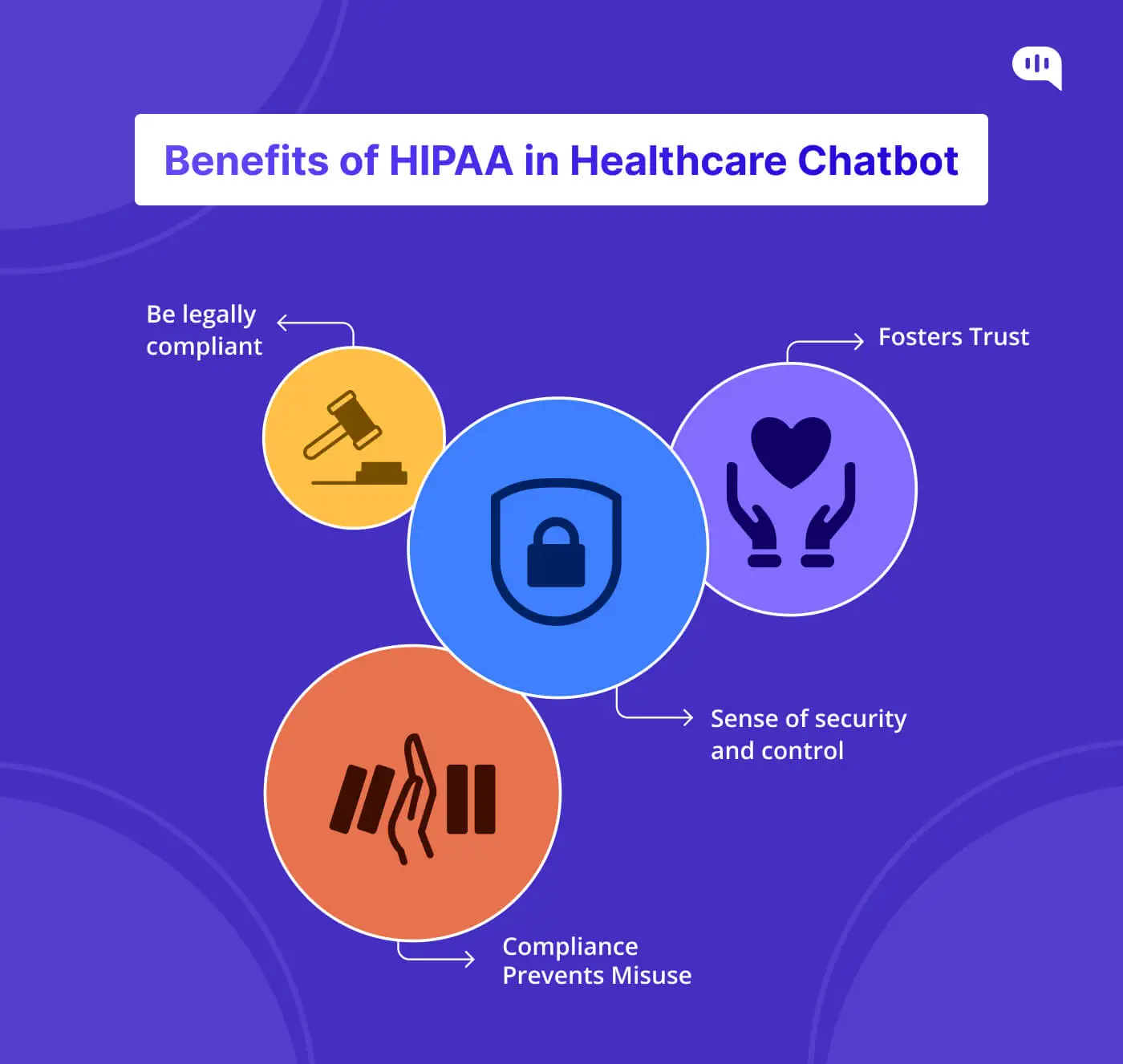
HIPAA, which stands for Health Insurance Portability and Accountability Act (HIPAA), is a vital safeguard that helps you protect your medical privacy in the digital realm. Your chatbots need to be compliant with HIPAA.
Here is the list of benefits that comes along with HIPAA compliant chatbot –
Compliance Prevents Misuse
Your medical information is one of the most sensitive pieces of data that you can own. When you are sharing it with a medical practitioner, no matter how reputed they are, there are chances of a data leak.
In fact, according to this report, data breaches exposed at least 41 million records between March 2021 and February 2022. If your chatbot is HIPAA compliant, then it prevents the chances that your healthcare data is exposed.
HIPAA ensures that only those who are required can access your data, and your chatbot can’t casually share your allergy list with a marketing firm.
Fosters Trust
Chatbots are considered “covered entities” under certain circumstances, and HIPAA lays down the legal framework by establishing clear guidelines on how these chatbots can use your Protected health information (PHI).
Sharing your PHI with a third party requires you to have a certain level of trust with them, and with a HIPAA-compliant chatbot, this trust is inherently built. To get your PHI, companies must obtain your informed consent and secure your information with robust encryption.
Be Legally Compliant
Healthcare chatbots that do not comply with HIPAA regulations are not an option if you plan to provide medical services in the US. This is because there are strict laws in place to protect PHI from potential misuse and defying the HIPAA rules will attract heavy penalties and legal repercussions.
Only 29 percent of healthcare organizations in the US said they were 76 to 100 percent compliant with HIPAA rules, according to this survey by the National Library of Medicine. This leaves a lot of scope for improvement, and ensuring that your healthcare chatbot is HIPAA-compliant is one step in the right direction.
Sense of Security and Control
With HIPAA, you have the power to delegate who has access to your PHI and who does not. You can access your chatbot’s past interactions, request corrections, and also stop access to your data beyond a certain limit.
With this level of control over your data, you get a sense of security and will more easily communicate with healthcare professionals, leading to better diagnosis.
We now know the importance of HIPAA compliance to healthcare chatbots. So how does one go about getting a HIPAA certification for their chatbots? We will explore this in detail in the next section.
Want to learn more about healthcare chatbot? Here are couple of other articles you can refer to –
- What are medical chatbots – definition, use cases and examples.
- The benefits of chatbots in healthcare
- Ethical considerations of using Conversational AI in healthcare
Key Requirements for HIPAA Compliance
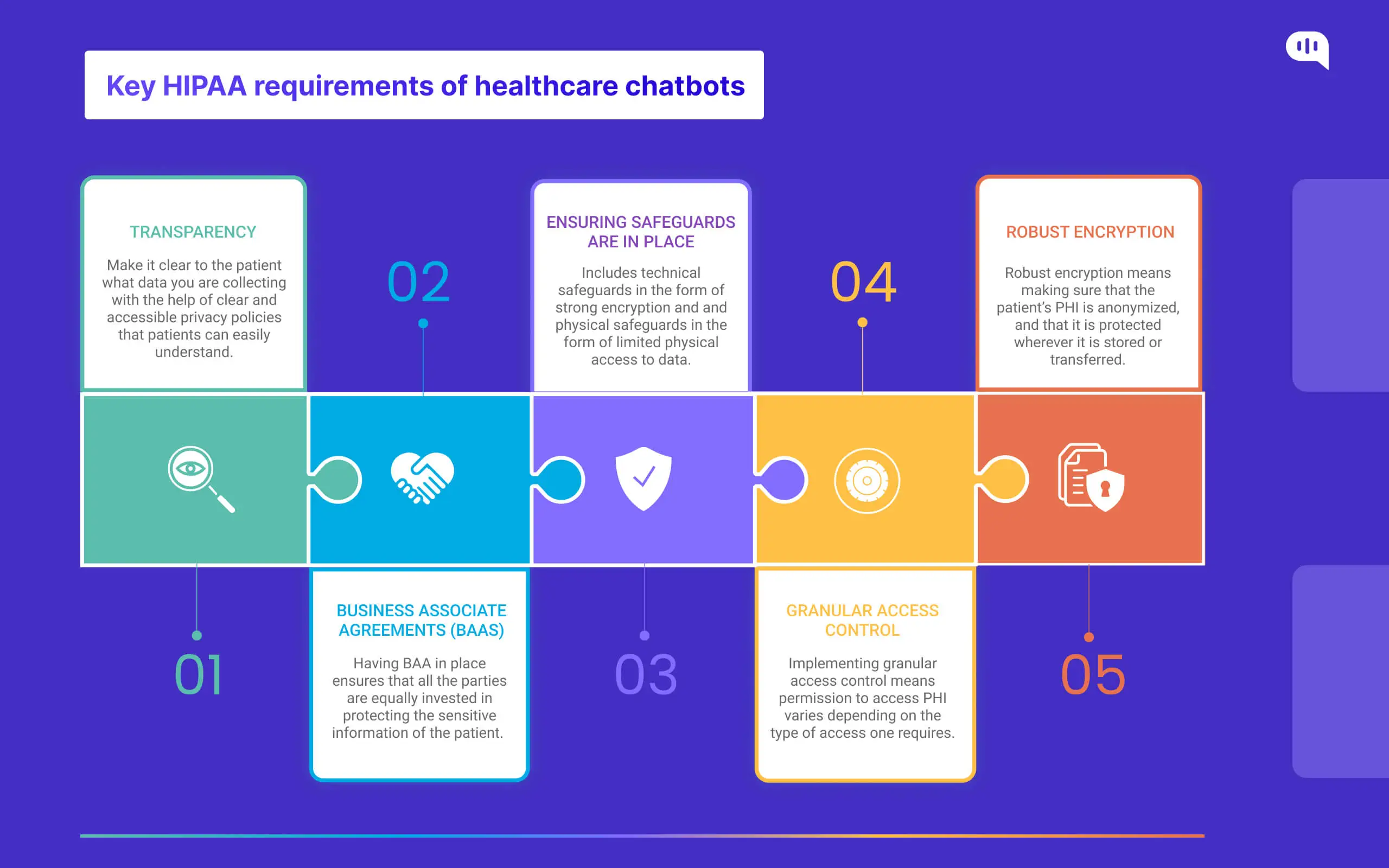
Some of the key requirements healthcare chatbots must adhere to in order to operate within the boundaries of healthcare chatbots include
Transparency
The first step before a patient parts with his information is that you make it clear to the patient what data you are collecting, and why. This can be done with the help of clear and accessible privacy policies that patients can easily understand. The more you tell them, the more they trust you.
Business Associate Agreements (BAAs)
When you are building your healthcare chatbot and are partnering with a third-party cloud service provider, make sure you are only selecting those who have documented HIPAA compliance practices. Having a good Business Associate Agreement (BAA) in place ensures that all the parties are equally invested in protecting the sensitive information of the patient.
Ensuring Safeguards are in Place
HIPAA has laid down some basic safeguards to protect patient information. This includes technical safeguards in the form of strong encryption and restricted access controls and physical safeguards in the form of limited physical access to data and secure hardware storage.
Granular Access Control
Implementing granular access control means permission to access PHI varies depending on the type of access one requires. For example, a customer service representative may need a different level of access compared to say, an administrative staff at the healthcare facility. This type of access control minimizes the risk of unauthorized access.
Robust Encryption
Robust encryption means making sure that the patient’s PHI is anonymized, and that it is protected wherever it is stored or transferred. The data should be protected both in rest and in transit. Anyone who does not have access to see your sensitive data, should not be able to see it.
If you have these key requirements in place, the next step is to ensure that you follow certain best practices before starting to build your healthcare chatbot.
We are listing down some of the best practices below
Best practices for HIPAA-Compliant Chatbot
Data Security – Your First Bet
The design of your chatbot’s architecture should be in such a way that data security is given the highest importance – both in rest and transit. Robust encryption methods are your friends here, and you must ensure that there is no chance of leakage as far as patient information is concerned.
The Right Tools = The Right Results
Choose the tools that you are building your healthcare chatbots with care, and make sure that their features are HIPAA compliant. This includes features such as secure data storage, audit trails, and encryption protocols.
Imparting the Right Training
HIPAA compliance is not just the responsibility of the development of the CS team alone – the sooner you impart this knowledge in your company, the better. Impart training to everyone involved in the development of your healthcare chatbot, and also those who are not. This will make sure that people know their roles in protecting sensitive patient information.
Be Open with Your Patients
When a patient comes to your website and types in sensitive health information on your chatbot, they are placing a certain level of trust in you. Make sure you maintain this trust by telling the patients how their information will be used, how you will be storing and protecting their data, and where their data will be shared. Remember, transparency is key here.
Audit and Monitor Regularly
Building a HIPAA-compliant chatbot is no one-time activity that you can forget once you implement it. It requires continuous monitoring for vulnerabilities and potential security threats. You must regularly audit data access, keep the software updated, and be vigilant about the new threats in cyberspace.
We have seen the best practices and also key requirements for building a HIPAA-compliant chatbot. So now comes the fun part – building a HIPAA-compliant healthcare chatbot. Let’s see how this is done.

Challenges in Developing HIPAA-Compliant Chatbot
Developing HIPAA-compliant chatbots can be challenging at time due to the stringent requirements for safeguarding patient information and ensuring secure data transmission and storage. Below are some other challenges that are seen –
Striking the Right Balance
HIPAA mandates that you communicate all the major data points that you are planning to collect from the patients. But how do you present lengthy privacy policies and consent forms while maintaining the experience of a chatbot? This can be a real design challenge for your team.
Third-Party Tool Vulnerabilities
Healthcare chatbots often rely on third-party tools for functionalities like NLP or data storage, and these tools are often vulnerable to security attacks. Developers thus have to walk the tightrope between selecting the right tool and making sure that the tools they have selected are not open to attacks.
HIPAA’s Evolving Nature
HIPAA regulations and interpretations keep evolving, and a healthcare chatbot developed today that is HIPAA compliant may soon be obsolete when a new regulation is passed. This requires your company to constantly monitor the legal complexities and keep up with the latest practices, adding to costs.
Tricky Data Minimization
To be HIPAA compliant, the emphasis lies on minimizing the data collected using the chatbot. But herein lies the challenge, because designing a helpful chatbot requires you to collect some information from the patient. So development teams now have to balance chatbot functionality with data minimization, collecting only data that is essential but also making sure the chatbot is effective.
There may be several challenges in incorporating a HIPAA-compliant healthcare chatbot, but that doesn’t make them any less effective. Healthcare chatbots are the way forward, and, if these trends are anything to go by, they are definitely the future.
Let us now see a few use cases of HIPAA-compliant healthcare chatbots.

Use Cases – HIPAA Compliant Healthcare Chatbot
Symptom Checker
A HIPAA-compliant symptom checker chatbot is a powerful tool for any healthcare organization. Chatbots can pose a few questions to new users and based on their inputs, redirect them to doctors in the healthcare institute who deal with that particular ailment.
General Advice-Giving
Healthcare organizations that are HIPAA compliant can use them to give general information to patients, including telling them about medical conditions and treatment options.
Appointment Scheduling
Healthcare organizations with HIPAA-compliant chatbots can use them to assist in appointment scheduling, answering queries about upcoming medical visits, and reminding them to visit doctors on time.
Medication Reminder
Chatbots can be used by patients to remind them about taking their medications on time, and, in case of refills, contacting the healthcare provider directly. This is an efficient way to ensure that the patients take their medicines on time.
As you can see, there are several ways you can use a HIPAA-compliant healthcare chatbot to better deliver medical care. Healthcare chatbots are already beginning to revolutionize the medical industry, and with the advent of technologies like Generative AI, we can rest assured that both patients and healthcare institutes will continue to reap chatbot benefits.
Frequently Asked Questions (FAQs)
Are you still having queries regarding HIPAA compliance in healthcare chatbots? Just take a deep breath and read on. Here are some of the most frequently asked questions about HIPAA compliance in healthcare chatbots. It should give you some more insights into the HIPAA compliance healthcare chatbot.
What is HIPAA and What is its Purpose?
HIPAA is a US law enacted to protect the privacy and security of patient health information (PHI) in healthcare chatbots, aiming to protect sensitive data while promoting efficient healthcare delivery.
Is there an expiry date of HIPAA Certificate?
Theoretically speaking, a HIPAA certificate has a shelf life of six years, although this may vary depending on the organization. It can even be longer in a few cases.
Who issues the HIPAA certificate?
HIPAA certification is issued by the US Department of Health and Human Services (HHS), who are responsible for enforcing the Privacy and Security rules.
What are the main rules of HIPAA?
There are 3 main rules of HIPAA –
- Privacy Rule: Sets national standards for the protection of PHI held by covered entities and their business associates.
- Security Rule: Establishes standards for the security of electronic PHI, requiring safeguards to ensure confidentiality, integrity, and availability.
- Breach Notification Rule: Requires covered entities to notify individuals and the Department of Health and Human Services (HHS) if there is a breach of unsecured PHI.
Naveen is an accomplished senior content writer with a flair for crafting compelling and engaging content. With over 8 years of experience in the field, he has honed his skills in creating high-quality content across various industries and platforms.

